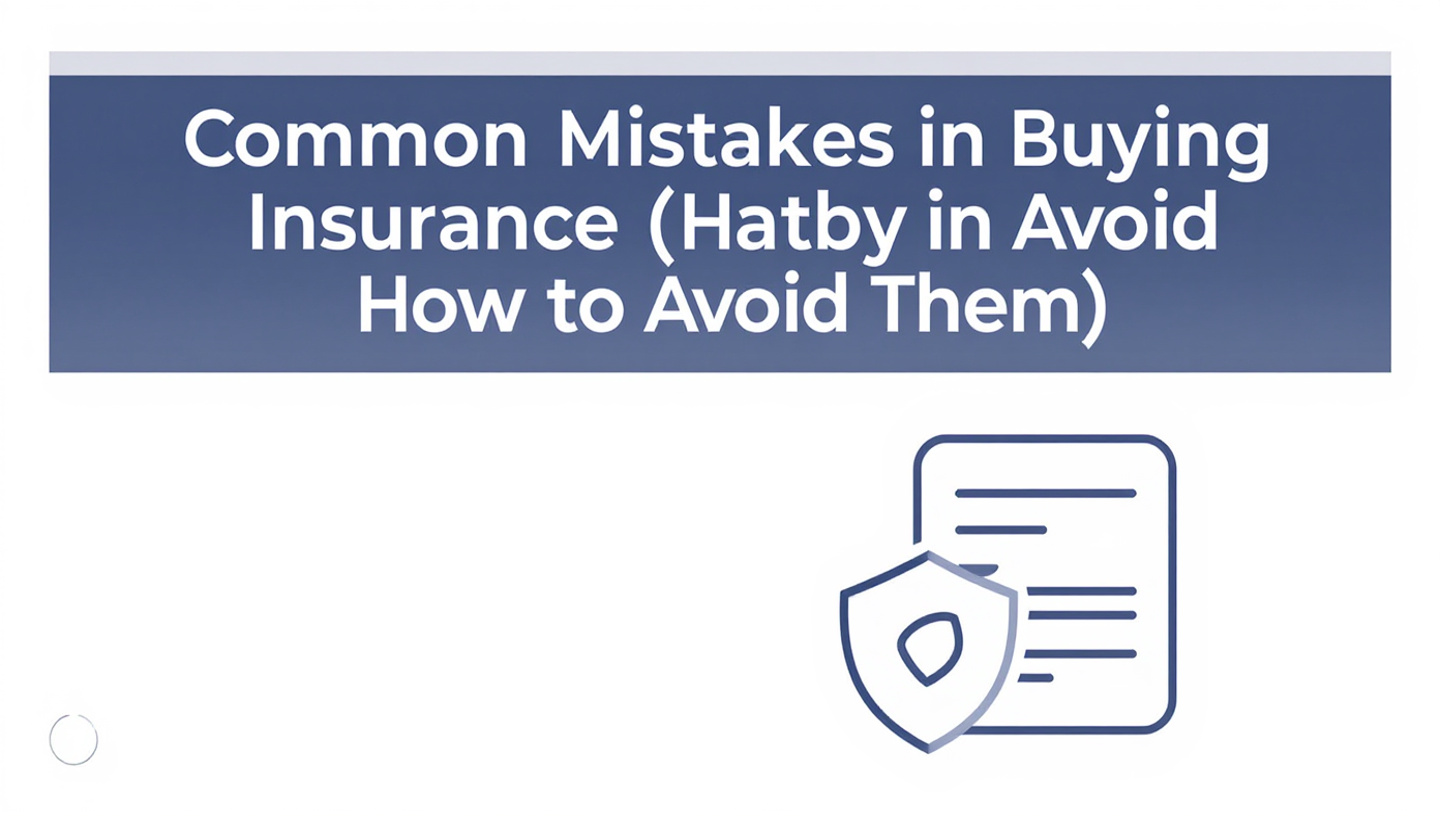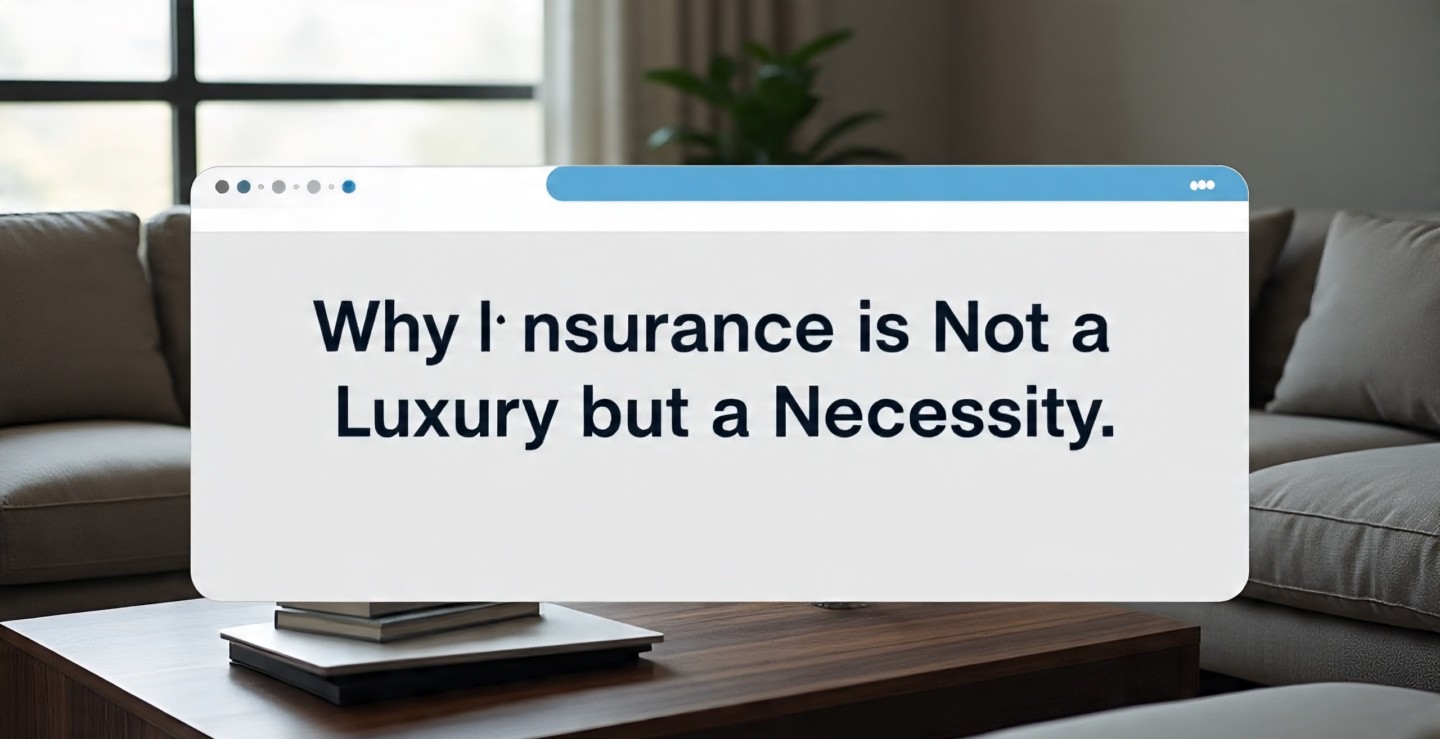Common Mistakes in Buying Insurance (and How to Avoid Them)
Buying insurance is one of the most important financial decisions a person can make. Whether it’s for your health, home, car, or life, insurance protects you against unexpected losses. Yet, many people rush through the process, make emotional decisions, or simply don’t understand what they’re signing up for. These mistakes can cost thousands of rupees (or dollars) and leave you vulnerable when you need protection the most.
In this article, we’ll discuss the most common mistakes people make when buying insurance and how to avoid them so you can make smarter, safer choices.
1. Buying Without Understanding Coverage
One of the biggest mistakes is purchasing a policy without truly understanding what it covers. Many people assume that once they’re insured, everything is protected but that’s rarely the case.
For example, a health insurance policy might cover hospitalization but exclude pre-existing conditions for the first few years. Similarly, an auto insurance plan may not cover theft or natural disasters unless you choose comprehensive coverage.
Always read your policy documents carefully and ask your insurance agent to explain unclear terms. Understanding what’s covered and what isn’t is key to avoiding unpleasant surprises later.
2. Choosing the Cheapest Policy
It’s tempting to pick the lowest-priced policy, especially when budgets are tight. However, cheaper isn’t always better in insurance. Low-cost plans often come with limited benefits, high deductibles, or hidden exclusions that can cause serious financial strain during a claim.
Note: Instead of focusing only on price, compare value for money. Look at claim settlement ratios, customer reviews, and the range of benefits offered. Paying slightly more for a reliable, comprehensive policy is often worth it.
3. Ignoring Exclusions and Fine Print
Insurance contracts are full of details and ignoring them is a common and costly mistake. Many policyholders don’t read the fine print, only to discover later that their claim has been denied because the event wasn’t covered.
For instance, travel insurance might exclude adventure sports injuries, or health insurance may not cover cosmetic procedures.
Note: Take time to understand exclusions, waiting periods, and claim conditions. If you’re unsure, consult your insurer or an independent advisor before finalizing the policy.
4. Not Comparing Multiple Options
Another major mistake is buying the first policy that comes along. Many buyers stick with the first insurer they talk to, often because of convenience or lack of awareness.
However, comparing plans from different providers can reveal better benefits, lower premiums, or higher claim settlement rates.
Note: Use online comparison tools or talk to a licensed insurance broker to evaluate multiple policies before deciding. A little research can save you a lot of money and trouble in the long run.
5. Underinsuring or Overinsuring Yourself
Getting the coverage amount wrong is a classic error. Some people buy minimal insurance to save money known as underinsurance which leaves them financially exposed. Others overestimate their needs and pay for more coverage than necessary.
Note: For life insurance, a common rule of thumb is to choose coverage worth 10–15 times your annual income. For health insurance, consider your family size, age, and medical history. Always strike a balance between affordability and adequate protection.
6. Delaying Insurance Purchase
Procrastination is another costly mistake. Many people delay buying insurance, thinking they’re young and healthy, or that they’ll “get it later.” Unfortunately, waiting increases both risk and cost.
Insurance premiums rise with age, and any medical issues that develop later can make you ineligible or result in exclusions.
Note: The best time to buy insurance is now while you’re healthy and can get the best rates and coverage.
7. Not Updating Policies Over Time
Life changes marriage, having children, buying a new car, or starting a business all affect your insurance needs. However, many people fail to review or update their policies accordingly. This can result in inadequate coverage or outdated beneficiaries.
Note: Review your policies annually or after major life events to ensure they still match your financial goals and lifestyle.
How to Make Smarter Insurance Decisions
To avoid these mistakes, start by educating yourself about different types of insurance and how they work. Work with trusted insurance advisors or certified brokers, not just salespeople. Always verify the insurer’s credibility, read reviews, and check their claim settlement ratio.
Maintain a clear record of your policy documents and keep an emergency contact who knows about your insurance details. Smart planning today ensures peace of mind tomorrow.













